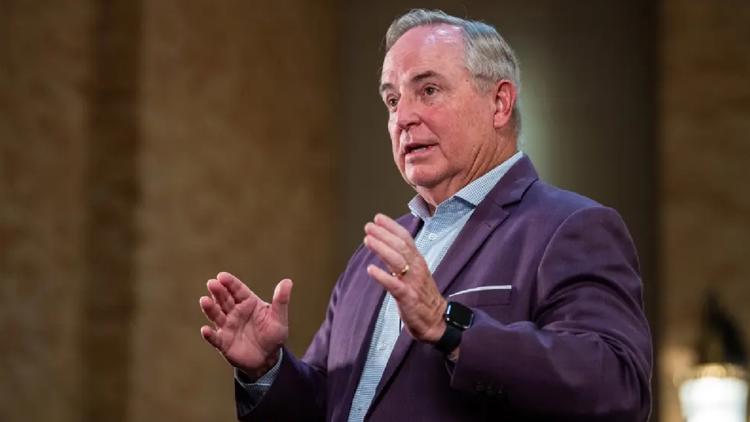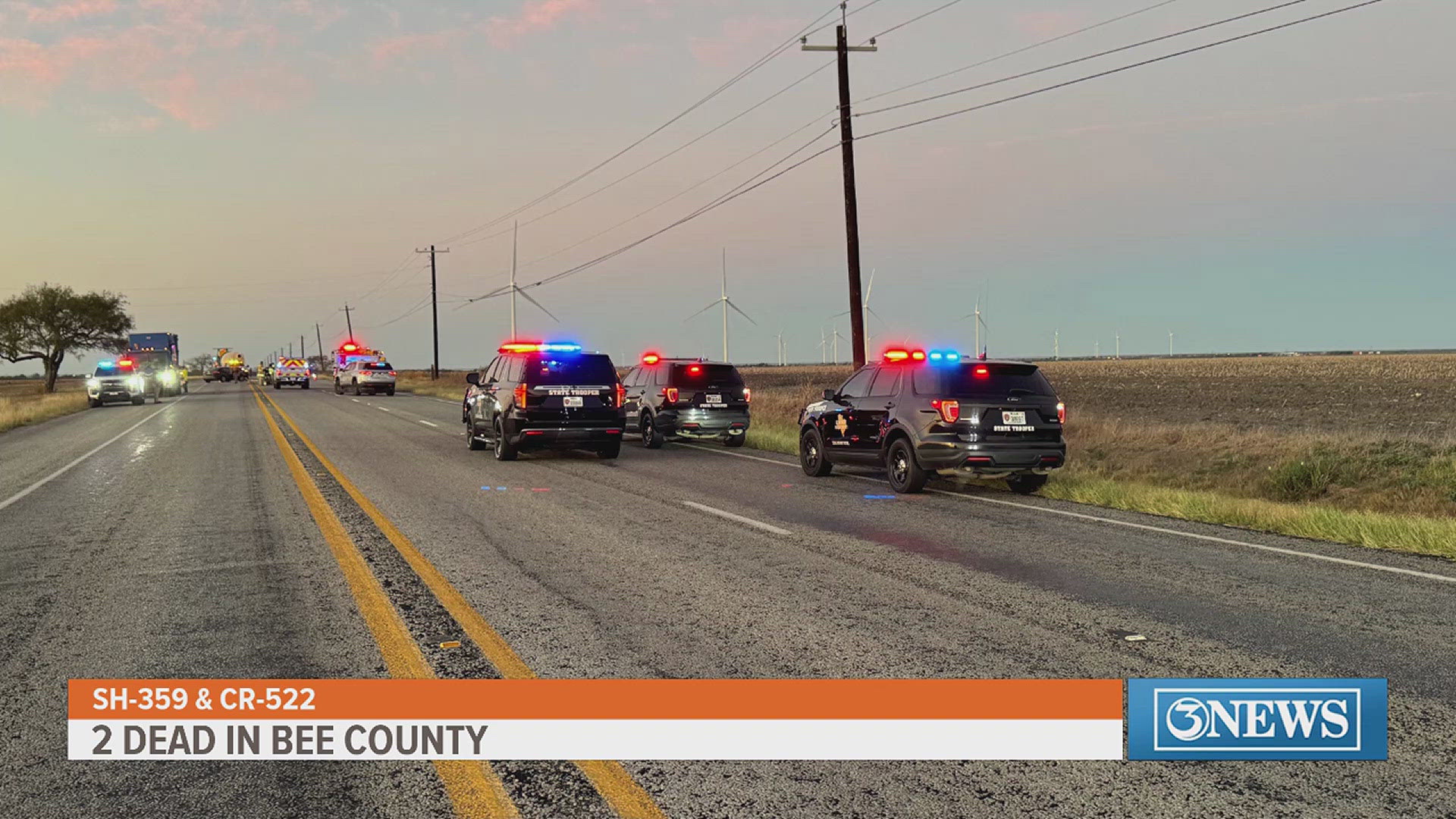COLLEGE STATION, Texas — This article originally appeared in The Texas Tribune. Click here to read it.
It’s been nearly a year since Texas A&M University President Mark Welsh III officially took the helm. The former dean of the university’s Bush School of Government assumed the role after a tumultuous year, first stepping in to temporarily take over after the former president resigned amid a faculty hiring controversy and questions about political interference. The Texas A&M University System later gave him the nod for the permanent job.
Editor's Note: The abstract has been amended for formatting constraints.
Welsh said he would try to rebuild trust lost with the faculty and move the university forward.
Welsh spoke with journalists on Thursday about his first year as president. Here are seven takeaways from his comments.
Welsh continues to repair communications with his staff
When Welsh came into the president’s office, the university was dealing with a widespread crisis in confidence. The prior president, Kathy Banks, resigned after the university’s attempts to hire a Black journalism professor collapsed, sparking widespread questions about how the negotiations crumbled. But faculty had been frustrated with Banks for months as she pushed through widespread changes at the university.
When Welsh took the helm he worked hard to rebuild trust and communication with his faculty.
“Part of that was bringing all the voices of the university together, which was part of the problem in my view,” he said. “We needed to make sure everyone knew that they had a voice in what we do here at Texas A&M, and it was a critically important voice.”
Faculty senates play a “critical” role on campus
Most public universities in Texas have faculty senates made up of elected faculty representatives from each college who provide feedback and input to university leaders on curriculum and other academic matters. They are broadly considered a respected voice on campus. Welsh said he is a “big fan” of the faculty senate at Texas A&M.
“They provide a critical advisory voice on so many things we do on campus,” Welsh told reporters. “The faculty senate does work that is fundamentally important to what we do as a university.”
Lt. Gov. Dan Patrick has signaled that he's interested in reviewing the current role faculty senates play on public university campuses. One of his interim charges for the Senate Higher Education subcommittee was to review the role of faculty senates and make recommendations to establish guidelines for their role and representation of the broader faculty.
Welsh did not say how he would respond to legislation proposing to change the role of faculty senates on Texas campuses.
Should A&M continue to grow?
Over the past decade, the flagship university has grown by more than 18,000 students. This year, enrollment is nearly 80,000, making it one of the largest universities in the country. Now, university officials are examining whether the school should cool down enrollment efforts and let staffing and infrastructure catch up to its student population.
Earlier this year, a university committee released a report recommending Texas A&M pause its growth for five years. They also released a second report on students’ college experience. The takeaway: Aggies love Texas A&M but the school is too big and needs to find ways to accommodate that growth in terms of things like parking, labs, and the student-to-faculty ratio.
Welsh said he is reviewing both reports and expects to make some decisions in the coming weeks.
“Those have the potential to have a big impact on campus because they affect a lot of things [like] infrastructure, faculty, size, staff size, student size [and] size of majors in some situations. So some big impacts are probably coming out of those two,” he said.
Abbott’s tuition freeze could “slow things down a bit”
Earlier this month, Gov. Greg Abbott told university system leaders he would not approve any tuition increase for the next two years, extending a tuition freeze that has been in effect since last year. Welsh said the directive is “understandable,” but said it would impact university services to students since one of the school’s major revenue streams won’t be able to grow.
“We have to make sure that we are as efficient as we can be in the ways we're spending all the funding we have available on campus now, so we prioritize the right things and do our part to meet the intent of his executive order,” Welsh said. “It’s not a showstopper. It may slow things down a little bit, but hopefully it'll also help us sharpen our focus.”
About 30% of A&M’s annual revenue comes from tuition and fees. Welsh said one of the main priorities for A&M during the upcoming session is to get additional funding to provide more course sections and smaller class sizes in the science, engineering, technology and math programs, as well as increase the number of academic advisers.
A&M lawyers review Abbott’s order on international relations
Earlier this week, Abbott issued an executive order prohibiting faculty and staff from participating in any recruitment program by a “foreign adversary nation” and prohibiting any state employees from accepting gifts or traveling to “foreign adversary countries,” including China.
Welsh said the decision will have widespread impacts on campus.
“We're in the process now of reviewing all our programs and seeing which ones specifically affects which faculty members, specifically which research projects are affected, if any,” he said.
Texas' NIL law
Earlier this week, The Texas Tribune reported that Texas Tech System leaders had asked Abbott to waive parts of the state’s “name, image and likeness” law to allow universities to offer NIL deals directly to college athletes. Right now, state law prohibits universities from making those deals.
A multi-case settlement is expected to change all that and require schools to set aside around $20 million each year in revenue to directly pay athletes.
“Texas law will need to be adjusted in some way for us to comply with all the provisions of that settlement,” Welsh said. “If we don't comply, we don't get injunctive relief that is intended from the settlement.”
Welsh said Texas A&M is already preparing infrastructure so the university can be ready when the court case settlement is expected to be finalized in April.
The return of the Lone Star Showdown
The long-awaited rivalry football game between Texas A&M and the University of Texas at Austin returns on Nov. 30.
Welsh predicted that the “Aggies are going to play their butts off.”



